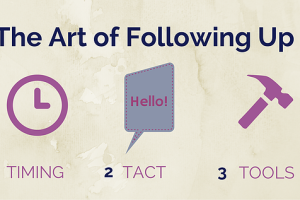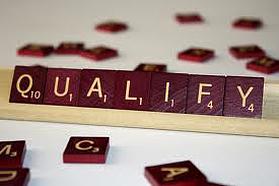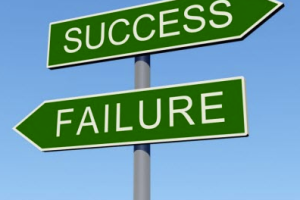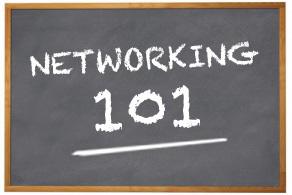You finally landed that coveted appointment with a big lead. You know you can’t just go in there and give a canned presentation, but the simple fact is that you’re not entirely sure you’re ready to give a customized presentation either. You need information, and this meeting will be your first, best opportunity to get it.
This, friends, is why it’s so important for us to be genuinely good conversation partners with our prospective clients. If we’re to have a real conversation, though – not a unilateral presentation or grilling interview – we’ll need to know how to ask the right questions as we go along. In this post, we’ll take a look at three hallmarks of a good sales question.
1. Good questions are open-ended.
There’s a time and a place for questions that have simple, binary answers like “yes” or “no.” Occasionally, you need to cut through the clutter and drill down to basics, such as when you feel like a prospect is giving you the run-around. Either your client is actively considering a competitor or not. Either your lead has final decision-making authority or someone else does. Closed-ended questions can help you get right to the point in cases like these so that you don’t waste your time chasing the wrong kind of lead.
But during most sales calls, you’re going to want your prospect to keep talking without you having to nurture the conversation at every turn. That means you’ll want to use thoughtful, open-ended questions as much as possible. Such questions resist simple, “just the facts” answers, inviting your leads to elaborate more richly on their unique needs and business processes – and giving you more information to go on when you prepare to ask your next question.
For example:
- INSTEAD OF: “Have you ever considered a cloud solution?”
- TRY: “What kinds of limitations are you experiencing with your in-house software right now?”
** When the client discusses limitations, an opportunity for discussing a relevant case example from a previous satisfied client might be appropriate.
- INSTEAD OF: “When might we expect to hear from you?”
- TRY: “What does your decision-making process look like moving forward?”
** This question will help indicate not only what your prospect’s level of urgency is, but it will also help uncover any other parties you might want to follow up with after the meeting.
- INSTEAD OF: “Would you like to see a brochure?”
- TRY: “What kind of information is most important to you in making a decision like this?”
** You don’t want to merely inform. You want to persuade – and so you need to know what parts of your solution to highlight.
2. Good questions nurture relationships.
Ideally, a sales interview is comprised of a handful of really good, open-ended questions that keep your prospect doing plenty of talking, while offering you plenty of opportunity to become a conversation partner along the way. That’s how rapport is built, and that’s how you establish authority for your solution. You want your customer to think of you as their “go to” person, not only for information about your solution, but for ideas about improving their business in the process.
So good sales questions are the kind that put prospects at ease by demonstrating sincerity and competence on the part of the questioner. They don’t punt the matter over to another party in the hopes that the respondent will help the questioner do his job for him. Instead, they suggest that the questioner is genuinely invested in helping his lead find the best solution – even if it doesn’t finally end up being the one he’s there to sell. (Remember, we can never discount the value of a good referral. And it’s always possible that a cold lead today could become a hot one in the future.)
Here are a couple examples of what that might look like:
- INSTEAD OF: “Would you be interested in an analytics package?”
- TRY: “What sorts of things would you be able to do if you could corroborate your current inventory turnover with actual net sales figures in real time?”
** This keeps a potentially ignorant client from looking dumb for not using analytics by offering a concrete example of the sorts of transactional analysis that your solution makes possible. This positions you as someone with ideas – and not merely a product to sell.
- INSTEAD OF: “What does your budget look like for a project like this?”
- TRY: “What are the most expensive parts of your current business process – and why?”
** A question like this shows that you’re not trying to sell them something they can’t afford. You’re trying to grow value instead.
3. Good questions elicit actionable information.
If we’ve done a good job so far, chances are good that by the end of the meeting, we have some genuine insights into what our prospects find valuable, what their real (and potentially unknown) pain points are, and what their time frame for making a decision looks like. From that, we can likely assess whether this is a strong or a weak lead and formulate a plan of action for either nurturing them along into the sales funnel or tabling them until a later date. Which is why the kinds of questions we ask need to be sharp enough to elicit genuinely actionable information.
Since we should never leave a sales meeting without a clear sense of what our next step ought to be – whether it’s to research an issue and follow up with a specific party, send over a proposed implementation timeline, or merely to wait a few weeks and check in to see if they’ve had time to give your proposal some thought. Asking the right questions can help us clarify what those next steps will be.
For example:
- INSTEAD OF: “Would you like to take some time to think this over?”
- TRY: “Could I follow up with you in a couple weeks, when you’ve had some time to review this literature?”
- INSTEAD OF: “What else would you like to know about our product?”
- TRY: “What lingering concerns do you have that my team hasn’t yet addressed so far?”
By keeping the conversation going, building rapport, and working towards actionable next steps, our skill in asking the right questions can be the make-or-break factor in landing our best clients. Just remember – it’s more art than science. Take the time after each sales call to think over the kinds of questions you felt worked well for you, and jot them down. Then make note of the ones that seemed to fall flat and see if they fall in one of the categories above.









Speak Your Mind